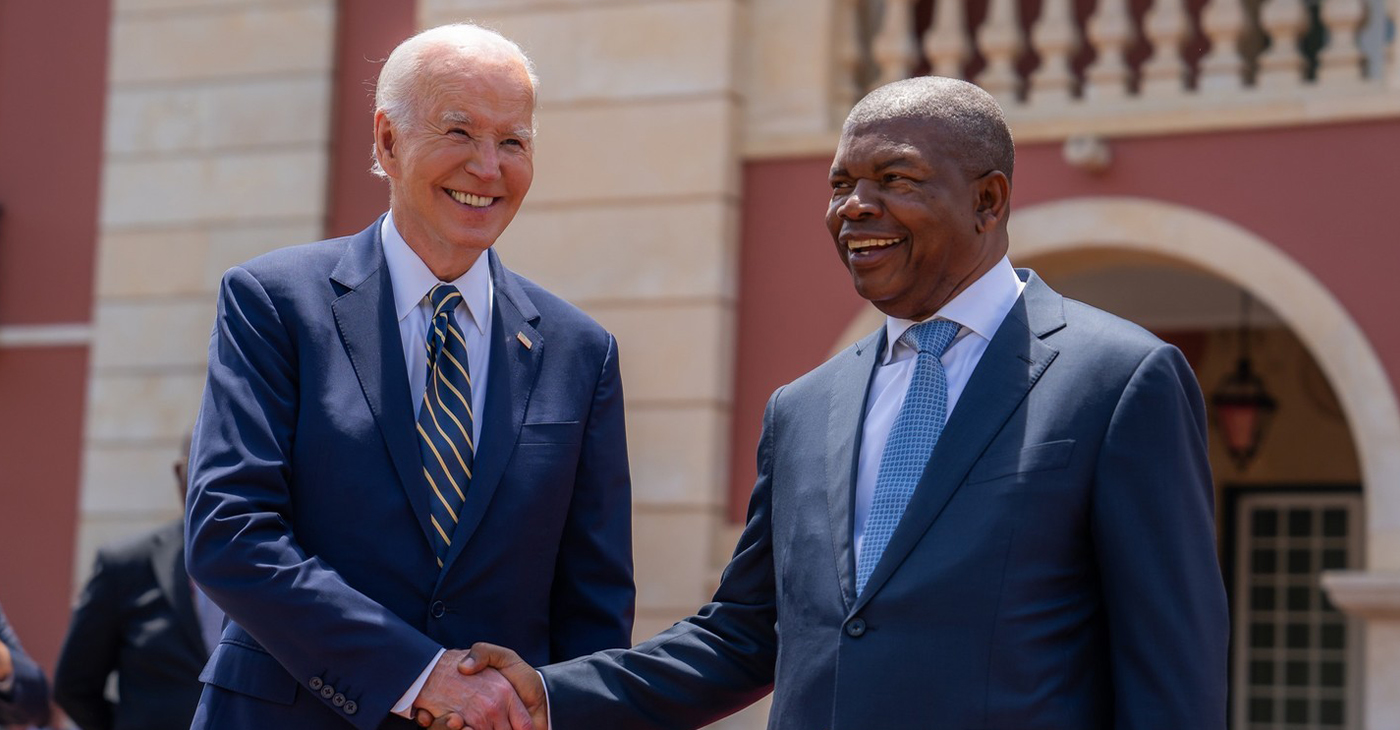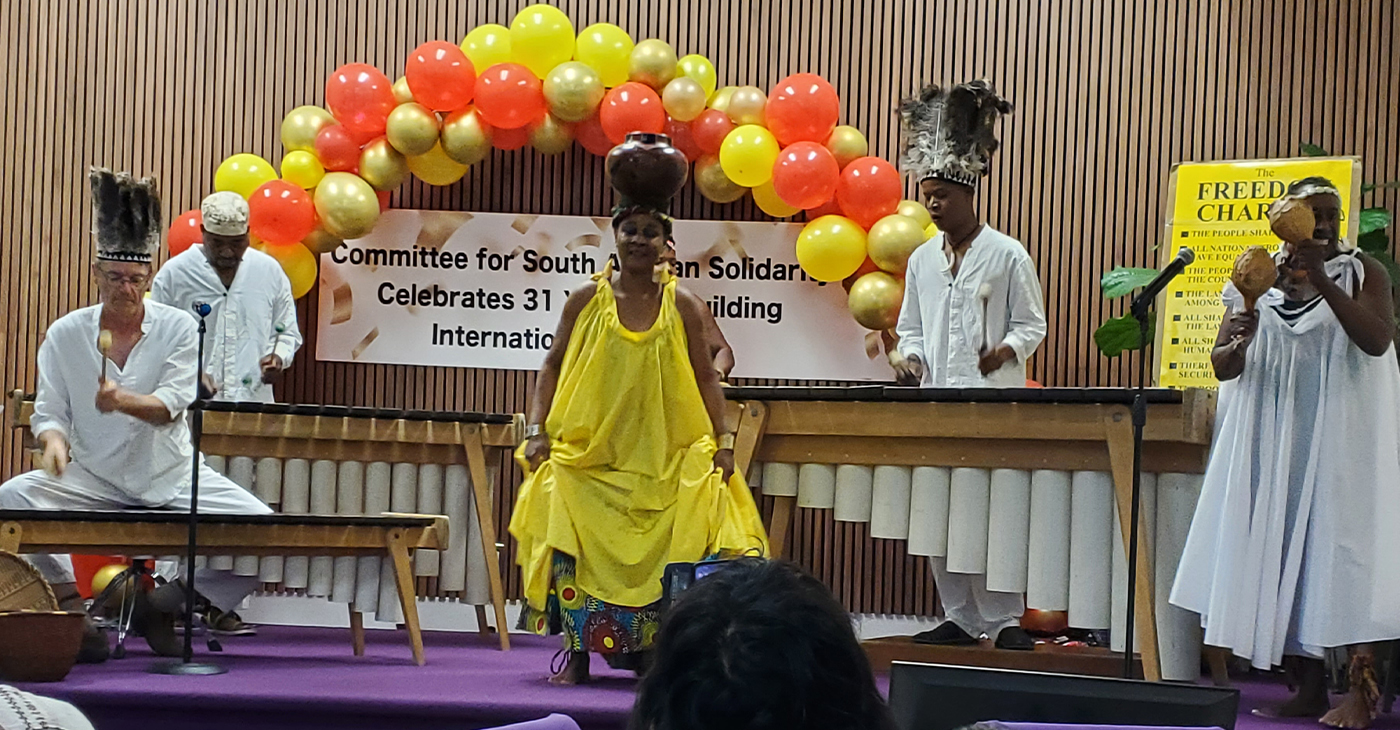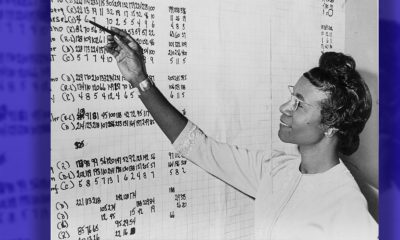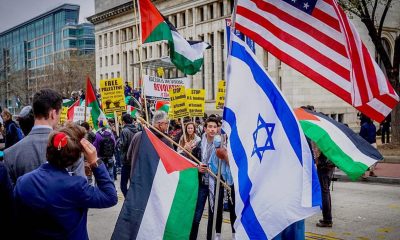World
In Kenya, Obama Blends Blunt Messages with Warm Reflections

President Barack Obama, left, puts his arm on the shoulder of Kenya’s President Uhuru Kenyatta, right, as the two leave after speaking to the media at State House in Nairobi, Kenya Saturday, July 25, 2015. (AP Photo/Ben Curtis)
Julie Pace, ASSOCIATED PRESS
NAIROBI, Kenya (AP) — President Barack Obama mixed blunt messages to Kenya’s leaders on gay rights, corruption and counterterrorism Saturday with warm reflections on his family ties to a nation that considers him a local son.
He foreshadowed a focus on Kenya in his post-White House life, saying, “I’ll be back.”
Obama’s comments during a news conference with Kenyan President Uhuru Kenyatta reflected the unusual nature of his long-awaited visit to this East African nation. His official agenda has been sprinkled with opportunities to reconnect with his late father’s sprawling Kenyan family, including some meeting the American president for the first time.
“There are cousins and uncles and aunties that show up that you didn’t know existed, but you’re always happy to meet,” Obama said. “There were lengthy explanations in some cases of the connections.”
Obama did little to paper over policy differences with Kenya’s government, most notably on gay rights. He drew on his own background as an African-American, noting the slavery and segregation of the U.S. past and saying he is “painfully aware of the history when people are treated differently under the law.”
“That’s the path whereby freedoms begin to erode and bad things happen,” Obama said. “When a government gets in the habit of treating people differently, those habits can spread.”
Kenyatta was unmoved, saying gay rights “is not really an issue on the foremost mind of Kenyans. And that is a fact.”
A number of Kenyan politicians and religious leaders had warned Obama that any overtures on gay rights would not be welcomed in Kenya, where gay sex is punishable by up to 14 years in prison. The Kenyan gay community also complains of sometimes violent harassment.
Obama also pushed Kenya to tighten its counterterrorism practices, which human rights group say have resulted in serious abuses. A Human Rights Watch report this year accused the Kenyan government of “extrajudicial killings, arbitrary detentions and torture by security forces.”
“If in reaction to terrorism, you’re restricting legitimate organizations, reducing the scope of peaceful organization, then that can have the inadvertent effect of increasing the pool of recruits for terrorism,” Obama said.
Kenyatta called the scourge of terrorism “an existential fight for us.” The Somalia-based al-Shabab, which is linked to al-Qaida, has conducted major attacks in Kenya, including the 2013 attack on Nairobi’s Westgate mall and an April attack in Garissa that killed nearly 150 people.
Obama also urged Kenyatta to keep up efforts to combat corruption, calling that the biggest potential threat to Kenya’s economic growth. But he said fulfilling anti-corruption pledges will require “visible prosecutions,” and had told Kenyatta, “People aren’t stupid.”
Obama’s trip to Kenya was the first to his father’s homeland since winning the White House, as well as the first visit by a sitting American president. Despite intense security throughout Nairobi, crowds gathered to watch Obama’s motorcade speed through the city. U.S. and American flags lined the main road from the airport and billboard’s heralded his arrival.
Acknowledging that some Kenyans have been frustrated that it took him until the seventh year of his presidency to visit, Obama joked that he did not want the rest of Africa to think he was “playing favorites.” He will also visit Ethiopia on this trip.
Obama’s election in 2008 was cheered in Africa, not just because of his family ties, but also because there was an expectation he would devote significant attention to the continent. Those high hopes have been met with some disappointment, given that Obama’s foreign policy has focused heavily on boosting ties with Asia and dealing with conflict in the Middle East.
The White House rejects that criticism, noting that Obama is making his fourth trip to Africa, more than any previous president. Officials are particularly sensitive to criticism that Obama’s Africa policies pale in comparison to his predecessor, George W. Bush, who launched a multibillion-dollar HIV/AIDS program.
On Saturday, Obama said many of his African initiatives, including a program to vastly increase access to power, were intended to be yearslong efforts. He also credited Bush’s health programs with saving millions of lives.
“I am really proud of the work that previous administrations did here in Africa, and I’ve done everything I could to build on those successes,” he said. “This isn’t a beauty contest between presidents.”
Some of Obama’s family — his grandmother, sister and aunts and uncles — joined him Saturday night for a state dinner in his honor. The president said he begged for his family’s forgiveness for not being able to travel outside the capital to see them in their homes, citing the presidential security apparatus.
After he is freed from the constraints of the presidency in early 2017, Obama said he hoped to do philanthropic work in Kenya that builds on administrative initiatives. He also promised that he would be joined on a return trip by Michelle Obama and daughters Malia and Sasha, who did not travel with the president on this trip.
Obama said that next time he’s back, “I may not be wearing a suit.”
___
Associated Press writers Darlene Superville and Christopher Torchia contributed to this report.
___
Follow Julie Pace at http://twitter.com/jpaceDC.
Copyright 2015 The Associated Press. All rights reserved. This material may not be published, broadcast, rewritten or redistributed.
###
Black History
Biden acknowledged America’s ‘Original Sin of Slavery,’ Pledged Infrastructure Dollars and Long-Term Financial Aid
“Our people lie at the heart of a deep and profound connection that forever binds Africa and the United States together. We remember the stolen men and women and children who were brought to our shores in chains and subjected to unimaginable cruelty,” Biden said in remarks at the National Museum of Slavery, which is built near the chapel where enslaved individuals were forcibly baptized before being sent to America. The museum was built on the property of Álvaro de Carvalho Matoso, one of the largest slave traders on the African coast.

Will Biden’s aid for an above-the-ground Railroad help ease the pain for the African Americans’ Underground Railroad?
By Post Staff
And news dispatches from the Guardian, CNN and AP
When President Joe Biden went to Angola this week the purpose was ostensibly to advance the Lobito Corridor, an unfinished 800-mile railway project meant to facilitate the transfer of critical minerals from interior countries to western ports for exports.
But in a visit to the country’s slave museum, he acknowledged America’s dark past and its connection to Angola in the presence of three descendants of the first captives who arrived in Virginia from Angola in 1619.
The child of two of those captives — Antony and Isabella — was William Tucker, born around 1623. Three of his descendants were present when Biden spoke at the country’s slave museum and humbly acknowledged how the horrific history of slavery has connected the United States and Angola.
“While history can be hidden, it cannot and should not be erased. It should be faced. It’s our duty to face our history,” he said. “The good, the bad and the ugly. The whole truth. That’s what great nations do,” he said.
“It was the beginning of slavery in the United States. Cruel. Brutal. Dehumanizing. Our nation’s original sin. Original sin. One that’s haunted America and cast a long shadow ever since,” Biden spoke as he honored the Tucker family.
After introducing Wanda Tucker, Vincent Tucker and Carlita Tucker, he delivered a hopeful vision for the future in a major speech from the country that was the point of departure for millions of enslaved Africans.
(Wanda Tucker now serves as the faculty chair of psychology, philosophy and religious studies at Rio Salado College in Arizona.)
“Our people lie at the heart of a deep and profound connection that forever binds Africa and the United States together. We remember the stolen men and women and children who were brought to our shores in chains and subjected to unimaginable cruelty,” Biden said in remarks at the National Museum of Slavery, which is built near the chapel where enslaved individuals were forcibly baptized before being sent to America.
The museum was built on the property of Álvaro de Carvalho Matoso, one of the largest slave traders on the African coast.
Biden told the attendees that he’s proud to be the first president to visit Angola and that he’s “deeply optimistic” about the future relationship between the nation and the US.
“The story of Angola and the United States holds a lesson for the world. Two nations with a shared history, an evil of human bondage,” Biden said. “Two nations on the opposite sides of the Cold War, the defining struggle of the late part of the 20th century. And now, two nations standing shoulder to shoulder working together every day. It’s a reminder that no nation need be permanently the adversary of another.”
Biden’s trip aimed to highlight U.S. investments in Angola and the continent in the face of deepening Chinese influence in the region, as Beijing has poured hundreds of billions of dollars into Africa through its Belt and Road Initiative.
Biden took a swipe at China’s moves, without calling out the country by name, and argued the US presents a better alternative.
“The United States understands how we invest in Africa is as important as how much we invest,” Biden said.
“In too many places, 10 years after the so-called investment was made, workers are still coming home on a dirt road and without electricity, a village without a school, a city without a hospital, a country under crushing debt. We seek a better way, transparent, high standard, open access to investment that protects workers and the rule of law and the environment. It can be done and will be done,” the president said.
Biden’s speech comes during what likely could be his last trip abroad as president and as he seeks to deepen relationships with Angola and other African nations at a time when China has made significant inroads in the continent with hundreds of billions of dollars of infrastructure investments, far outpacing the U.S.
During his remarks, Biden touted U.S. efforts to expand its relationships across Africa, including billions of dollars in investments in Angola.
He also announced over $1 billion in new US humanitarian assistance for Africans who have been displaced by historic droughts across the continent.
“But we know African leaders and citizens are seeking more than just aid. You seek investment.
So, the United States is expanding its relationships all across Africa,” Biden said, adding later: “Moving from patrons to partners.”
Ahead of his remarks, the president also met with Angolan leaders, including young people at the museum.
Biden started his day with a bilateral meeting with Angolan President João Manuel Gonçalves Lourenço at the presidential palace in Luanda.
The two men discussed trade and infrastructure, including the US and Europe’s investment in the railroad. They also discussed mutual security interests as Angola has played a key mediating role in the conflict in the eastern Democratic Republic of the Congo.
In November, Angola announced their Incremental Production Decree of fiscal terms designed to enhance the commercial viability of developing oil and gas fields. The decree enhances the commercial viability of developing fields in mature blocks, underexplored areas and stranded resources, while encouraging exploration near existing infrastructure. The US Railroad infrastructure investments could play a major role in enabling increased recovery from producing fields and extending the lifespan of critical infrastructure, the decree is set to generate billions in offshore investments, create jobs and drive economic growth, solidifying Angola’s position as a leading oil and gas producer.
Activism
South African Solidarity Committee Hosts 31st Annual Celebration
“We’re all together for each other celebrating 31 years of building international solidarity between the people of the United States and South Africa toward the implementation of the 1955 Freedom Charter and 2030 Sustainable Development Goals,” said COSAS Operations Manager Nicole Richards.Located in Berkeley, COSAS is dedicated to the continuing struggle by the people of South Africa’s need for independence.

By Carla Thomas
The Committee of South African Solidarity (COSAS) celebrated its 31st anniversary on Saturday, Oct. 26 at the East Bay Church of Religious Science in Oakland.
Themed “Ubuntu,” a word in Zulu and Xhosa, which means “I am because we are,” the event brought together supporters and community members.
“We’re all together for each other celebrating 31 years of building international solidarity between the people of the United States and South Africa toward the implementation of the 1955 Freedom Charter and 2030 Sustainable Development Goals,” said COSAS Operations Manager Nicole Richards.
Located in Berkeley, COSAS is dedicated to the continuing struggle by the people of South Africa’s need for independence.
A soulful meal was prepared by Chef Rene Johnson and Blackberry Soul Catering along with live entertainment and speakers.
COSAS is an all-volunteer, private membership organization, made up of South Africans, Africans, students, professionals, clergy and others committed to building solidarity between the working people of the U.S. and the South African people still struggling for economic and political freedom.
Formed in 1993, the organization promotes the “real nature” of the changes and struggles taking place in South Africa and the African continent, according to Richards.
“COSAS counters ‘disinformation’ and ‘misinformation’ in the U.S. and Western mainstream media that creates division and distrust,” Richards said. “We produce the South African Beacon and organize and transport solidarity shipments of school supplies to South African grade schools requesting assistance,” Richards said.
According to organizers, COSAS is completely run by volunteers, free from the corporate and government agendas that continue to keep South Africa dependent on the West.
“We rely on the support of concerned individuals. Call us today about how you can get involved by sorting and packing supplies, donating office equipment, and supporting special events,” said Richards.
Earlier in the year, COSAS hosted its World Affairs film showing at Downs Memorial United Methodist Church. The screening featured a short film, “Feeding a Crisis: Africa’s Manufactured Hunger Pandemic,” exploring the hunger challenges African countries face and approaches to resolving the issues.
Contact the Committee for South African Solidarity, 1837 Alcatraz Ave., Berkeley, CA, 510-251-0998 for volunteer opportunities and event information.
Community
How Mobihealth Drives a Telemedicine Revolution in Africa
As a child growing up in northern Nigeria, Dr. Funmi Adewara experienced a severe hand injury that required multiple surgeries and frequent hospital visits. These visits exposed her to the harsh realities of the country’s healthcare system. “I remember sitting in overcrowded waiting rooms, watching doctors stretched thin, unable to meet the needs of so many patients,” Adewara recalls. This formative experience ignited her passion for transforming healthcare in Africa.

By Ifeanyi Abraham
CNN
As a child growing up in northern Nigeria, Dr. Funmi Adewara experienced a severe hand injury that required multiple surgeries and frequent hospital visits.
These visits exposed her to the harsh realities of the country’s healthcare system. “I remember sitting in overcrowded waiting rooms, watching doctors stretched thin, unable to meet the needs of so many patients,” Adewara recalls.
This formative experience ignited her passion for transforming healthcare in Africa.
Growing up with a mother who worked as a nurse, Adewara’s understanding of healthcare challenges deepened through her mother’s stories.
“I knew early on that healthcare wasn’t a privilege — it was a necessity, and I wanted to be part of changing the system,” she explains.
After training as a physician, Adewara worked for 15 years in the United Kingdom’s National Health Service before founding the telemedicine platform Mobihealth in 2017.
Since its launch, Mobihealth has impacted thousands of lives, connecting patients with doctors and healthcare professionals across Nigeria and beyond.
The platform has 20 integrated telehealth clinics that offer remote consultations, diagnostics, and access to specialist care via digital health tools. Located primarily in Nigeria, these clinics are accessible to patients through various subscription plans and are often financed through partnerships with global donor organizations and private donors.
In addition to the clinics, Mobihealth has partnerships with over 200 hospitals, labs, and pharmacies, Adewara says.
The company has earned global recognition, including a $1 million grant from the U.S. Trade and Development Agency in 2022. Adewara was also one of the World Bank’s seven 2020 Sustainable Development Goals & Her award winners, selected from over 2,400 entries worldwide.
Connecting Rural Patients
Across sub-Saharan Africa, millions struggle to access basic healthcare. According to the World Health Organization, the region bears 25% of the global disease burden but has only 3% of the world’s healthcare workers.
“In rural Africa, a trip to the nearest hospital can mean the difference between life and death,” says Adewara.
Mobihealth’s latest initiative offers healthcare for $1 a month for rural and underserved populations. It allows Africans in the diaspora — and global supporters — to sponsor essential services like doctor consultations, diagnostic tests, and access to telemedicine clinics.
The scheme is not solely based on donations; individuals can also subscribe to the service for themselves.
“Healthcare systems across Africa are under immense pressure,” Adewara explains. “Our initiative is a direct response, using technology to connect rural patients with doctors thousands of miles away.”
For Adewara, Mobihealth’s telemedicine platform is not a temporary fix; it represents the future of healthcare in Africa.
“This is about creating a resilient, sustainable and inclusive system, where people, no matter where they are, can access the care they need,” she says.
“Telemedicine brings doctors to people, wherever they may be. By integrating AI and remote monitoring, we are improving the speed and accuracy of care, saving lives in the process,” she adds.
A number of African companies provide telemedicine services, but researchers have pointed out that there are obstacles that could hinder the growth of telemedicine in the continent.
Rural areas can have an unreliable electricity supply and poor internet connectivity, and there is often a lack of government policies and funding around virtual healthcare.
“A Healthcare System for the Future”
Adewara envisions scaling her company’s model to reach millions more across Africa, particularly in countries like Ghana, Kenya, and Ivory Coast.
“Our work is just beginning,” she says. “We are building a healthcare system for the future — one that is resilient, inclusive and capable of meeting Africa’s growing population’s needs.”
However, partnerships are crucial to achieving this vision. “We can’t do this alone. Our collaborations with the African diaspora, hospitals, governments, and international organizations allow us to reach more people and ensure that healthcare is affordable, efficient and accessible,” Adewara adds.
-

 Activism4 weeks ago
Activism4 weeks agoOakland Post: Week of November 20 – 26, 2024
-

 California Black Media4 weeks ago
California Black Media4 weeks agoCalifornia to Offer $43.7 Million in Federal Grants to Combat Hate Crimes
-

 Black History4 weeks ago
Black History4 weeks agoEmeline King: A Trailblazer in the Automotive Industry
-

 California Black Media4 weeks ago
California Black Media4 weeks agoCalifornia Department of Aging Offers Free Resources for Family Caregivers in November
-

 California Black Media4 weeks ago
California Black Media4 weeks agoGov. Newsom Goes to Washington to Advocate for California Priorities
-

 Activism4 weeks ago
Activism4 weeks agoOCCUR Hosts “Faith Forward” Conference in Oakland
-

 Activism3 weeks ago
Activism3 weeks agoOakland Post: Week of November 27 – December 3, 2024
-

 Activism4 weeks ago
Activism4 weeks agoRichmond Seniors Still Having a Ball After 25 Years
























































